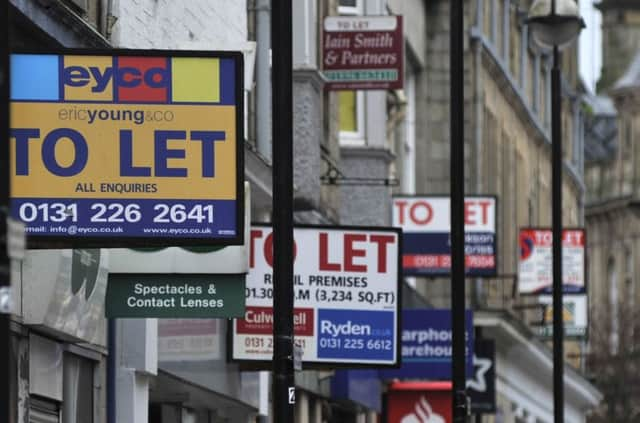David Alexander: Tenants taking landlord route to home ownership


Not everyone who rents property privately is ‘stuck’ in the system, as some commentators seem to imply. Over the past two decades renting in the private sector has become a lifestyle choice for an increasing sector of the population, attracted by the flexibility it offers in addition to freedom from the ‘hidden’ costs of home ownership, eg large capital down payments, legal and other service fees and, of course, the ongoing costs of improvements and upgrades necessary to retain a property’s marketability.
Nevertheless it is perfectly true that a larger number of tenants, especially those settled in a particular location, would prefer to be in a home they can call their own. The problem, however, is finding the deposit being demanded by mortgage lenders, which is proving a daunting task even for couples where both partners are in relatively well-paid employment.
Advertisement
Hide AdAdvertisement
Hide AdUp to now the only option for those without the Bank of Mum and Dad, has been to “save, save, save”. Unfortunately this can lead to frugal (and boring) lifestyles coupled with the frustration of seeing house-price inflation shoot ahead of today’s derisory savings returns (few young people are prepared to risk their capital by investing in the stock market).
That was until a few months ago when some bright spark, somewhere, had the idea of ‘playing’ the housing market to his or her advantage as a means of getting a foot on the property ladder without any diminution in personal lifestyle. And it seems this person has started a trend, with more and more potential buyers cottoning on to the idea.
Let me use an actual (rather than hypothetical) example to explain how it works. A young couple rent a two-bedroom basement flat with garden in Edinburgh’s fashionable Stockbridge district for £1,200 a month. They like living there but in present circumstances could not possibly afford the equivalent purchase price, which would be as much as circa £450,000, possibly entailing a mortgage deposit of up to £90,000. So what they have done is purchase a two-bedroom flat in an East Lothian market town for which the deposit was a more achievable £20,000 and they are now renting out the flat at £600 a month. This has given them a foothold on the property ladder and means that, despite renting their current home, they will actually be largely protected from future house-price inflation.
The second key advantage is that they can, as tenants, continue enjoying their current home environment which one day they hope to make their own – either in this property (should the landlord decide to sell) or something similar.
This is not a win-win option for everyone because, clearly, it will available only to someone who has a certain amount of capital, or who has the ability to raise capital through saving. But the bottom line is that £20,000 is a more realistic goal than £90,000. And of course there is an added bonus – someone renting a home who buys a property to let will not, unlike an existing owner-occupier, pay an additional rate of Land and Buildings Transaction Tax.
I have decided to look at this new phenomenon as a welcome spirit of ingenuity and entrepreneurship by young citizens prepared to make an effort to overcome barriers rather than sitting by the fire (or pub table) and whining about them.
David Alexander is managing director of DJ Alexander